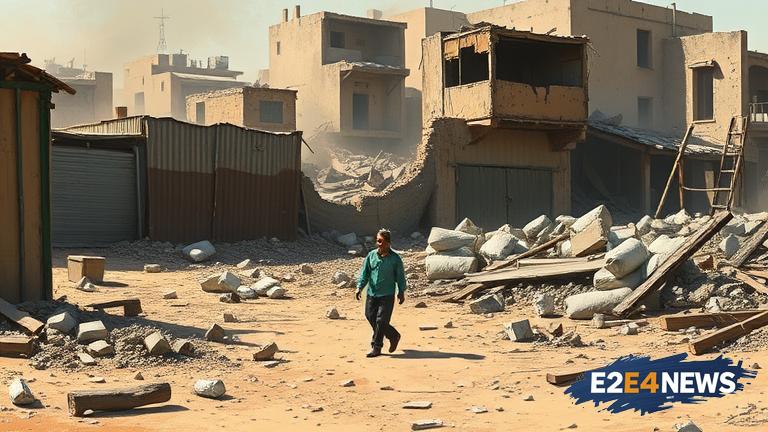The Gaza Strip, a region already plagued by poverty and lack of resources, is now facing a severe humanitarian crisis. The effects of famine and malnutrition are being felt across the territory, with thousands of people struggling to access basic necessities like food and clean water. Despite efforts by aid organizations, the situation remains dire, with many residents forced to rely on meager rations and inadequate shelter. The World Food Programme (WFP) has warned that the situation is critical, with many families unable to afford even the most basic staples. The crisis is being exacerbated by a range of factors, including a crippling blockade, high unemployment, and a lack of access to basic services like healthcare and education. The Gaza Strip has been under a blockade since 2007, which has severely limited the flow of goods and people into and out of the territory. This has had a devastating impact on the local economy, with many businesses forced to close and thousands of people left without work. The humanitarian crisis is also being fueled by a lack of access to clean water and sanitation, with many residents forced to rely on contaminated water sources. The situation is particularly dire for children, who are vulnerable to malnutrition and related health problems. The WFP has warned that the crisis is having a profound impact on the mental and physical health of residents, with many people experiencing anxiety, depression, and other psychological problems. The organization has called for urgent action to address the crisis, including an increase in aid funding and a lifting of the blockade. However, the situation remains complex, with many parties involved and a lack of clear solutions. The international community has been criticized for its response to the crisis, with many arguing that more needs to be done to address the root causes of the problem. The United States, in particular, has been accused of turning a blind eye to the crisis, despite its significant financial contributions to the region. The European Union has also been criticized for its response, with many arguing that it has failed to take a strong enough stance on the issue. The crisis in Gaza is also having a broader impact on the region, with many countries affected by the flow of refugees and the spread of instability. The situation is a stark reminder of the need for a comprehensive and sustainable solution to the conflict, one that addresses the root causes of the crisis and provides a framework for long-term peace and stability. The humanitarian crisis in Gaza is a complex and multifaceted issue, requiring a coordinated and sustained response from the international community. It is imperative that aid efforts are increased and that the blockade is lifted, in order to prevent further suffering and to provide a foundation for long-term recovery. The situation is a stark reminder of the need for a more nuanced and informed approach to the conflict, one that takes into account the complex historical, cultural, and economic factors at play. Ultimately, the crisis in Gaza is a humanitarian issue, one that requires a compassionate and comprehensive response from the international community. The world cannot afford to turn a blind eye to the suffering of the people of Gaza, and it is imperative that urgent action is taken to address the crisis. The situation is a test of the international community’s commitment to human rights and dignity, and it is essential that we rise to the challenge. The people of Gaza deserve our support and solidarity, and it is our responsibility to ensure that they receive the aid and assistance they so desperately need. The crisis in Gaza is a reminder that even in the darkest of times, there is always hope for a better future. With the right approach and the right support, it is possible to build a more just and equitable society, one that provides opportunities and dignity for all. The international community has a critical role to play in this process, and it is essential that we work together to address the crisis and to build a more sustainable and peaceful future for the people of Gaza.
